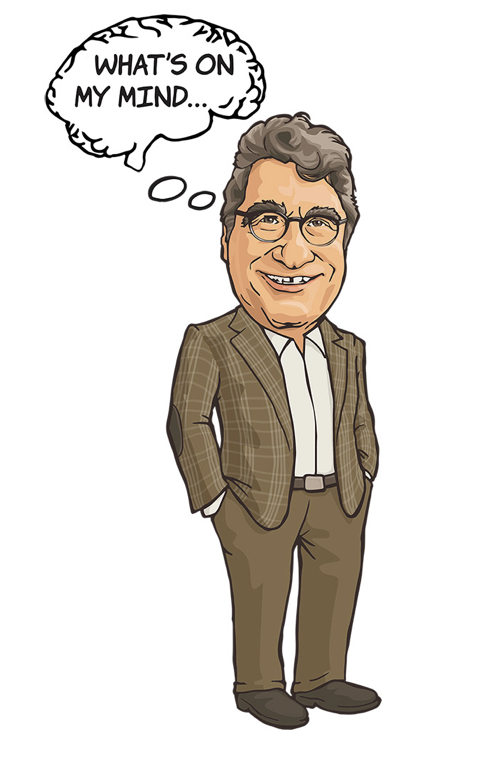 This regular column is aimed at opening another channel of conversation with you about the opportunities and challenges we face, together as the faculty, staff and leaders of our great university.
This regular column is aimed at opening another channel of conversation with you about the opportunities and challenges we face, together as the faculty, staff and leaders of our great university.
Sports is a common denominator in our society. Go into the stands at any game, and as that ball clears the fence, crosses the goal line or swishes into the net, we cheer and thump the backs of friends and strangers alike.
In that moment, we aren’t Democrats and Republicans, Muslims and Christians, men and women. We are simply fans cheering as Marcus Mariota unbelievably catches his own pass and scores a touchdown. And in that moment, we can learn.
In American history, sports have often been the harbinger of social change. Jesse Owens taught us when he won four gold medals at the 1936 Olympics. Vanderbilt alumni Perry Wallace and Godfrey Dillard taught us when they integrated the Southeastern Conference and Vanderbilt varsity basketball in 1967. Billie Jean King taught us when she beat Bobby Riggs in the Battle of the Sexes in 1973. And today, professional athletes teach us by using their platforms to bring light to many of the most pressing and controversial issues of our time.
Perry’s and Godfrey’s stories show us that universities play an important role in the fight for equality. I want Vanderbilt to be a place that convenes these learning moments and serves as an archive that scholars and students can use to trace the arc of justice. I want our community to have a role in talking about the issues that divide us, providing space for reasoned and civil discourse. I want this center to give voice to those who are told to just play the game and keep quiet. Ultimately, our shared aim is to promote not just change, but true progress.
To support that goal, under the guidance of Vice Chancellor David Williams Vanderbilt is establishing a new academic center to explore the intersection of sports, race, gender and culture in society. The Center for Sports and Society will support research, teaching and scholarship.
I announced the center last night in Washington, D.C., at an event that continued Vanderbilt’s commemoration of the courageous steps that Perry and Godfrey took 50 years ago. In the magnificent new Museum of African American History and Culture, we hosted a panel discussion on the intersection of activism, race and sports with important voices from the worlds of sports and academia. Guests also saw a preview of Triumph: The Untold Story of Perry Wallace. The documentary, commissioned by Vanderbilt, chronicles Wallace’s and Dillard’s experiences as pioneering African American students and athletes.
Last night’s event is an example of the programming we’ll sponsor at the center, with the goal of raising awareness and understanding and promoting progress. I look forward to building a community of support for the center as we formalize our plans.
I’m also looking forward to this weekend’s slate of events for our annual MLK Commemoration, where we will explore how we can fight oppression without suppressing free speech. Through hands-on work and learning opportunities, we’ll explore the challenges of supporting free speech, collective action and civil disobedience in the face of increasing hateful rhetoric.
The weekend kicks off at noon Friday at the Bishop Joseph Johnson Black Cultural Center followed by a weekend of service. On Monday, we’ll join the city in the Nashville Freedom March, followed by an afternoon of teach-ins. You can find a full schedule of events here.
The weekend wraps up Monday evening with the MLK keynote by Georgetown University’s Michael Eric Dyson at Langford Auditorium. Described as both the ideal public intellectual of our time and a street fighter in suit and tie, Dyson’s commentary meshes perfectly with the challenges we face today. I hope to see you there.
What’s On My Mind is a regular column from Vanderbilt University Chancellor Nicholas S. Zeppos on the life, people and mission of Vanderbilt University and issues affecting higher education today. Share your thoughts at chancellor@vanderbilt.edu.